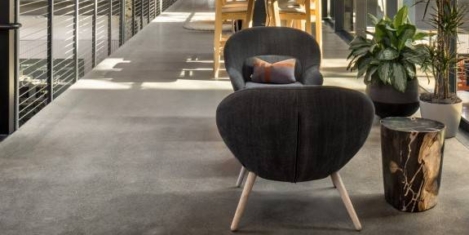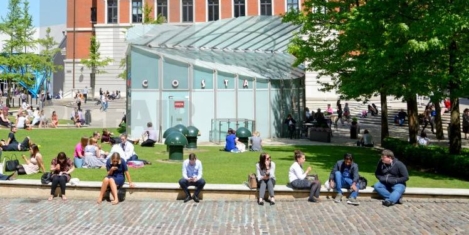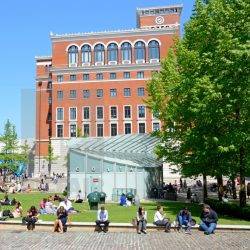March 15, 2019
How artificial intelligence changes occupant experience
 If a robot received a signal that you had entered the building, it might bring you a fresh cup of coffee just as you reach your desk. If the front door recognised your face, it might unlock itself for you without requiring you to use a fob to gain access. If your desk knew you had left for the day, it might offer itself to a colleague who is looking for a quiet workspace. Throughout history, the interaction of humans with technology has been pretty much one-sided. We turn our technologies on and off, operate and guide them in their tasks, and use our senses to monitor their functioning and detect anomalies.
If a robot received a signal that you had entered the building, it might bring you a fresh cup of coffee just as you reach your desk. If the front door recognised your face, it might unlock itself for you without requiring you to use a fob to gain access. If your desk knew you had left for the day, it might offer itself to a colleague who is looking for a quiet workspace. Throughout history, the interaction of humans with technology has been pretty much one-sided. We turn our technologies on and off, operate and guide them in their tasks, and use our senses to monitor their functioning and detect anomalies.












 We might think that an inability to absorb the vast amount of information generated by our fellow humans and their machines is something of a modern phenomenon, but we’ve always known we can have too much of this particular good thing. Distringit librorum multitude, wrote Seneca in the First Century. An abundance of books is a distraction.
We might think that an inability to absorb the vast amount of information generated by our fellow humans and their machines is something of a modern phenomenon, but we’ve always known we can have too much of this particular good thing. Distringit librorum multitude, wrote Seneca in the First Century. An abundance of books is a distraction.


 Job security is the top reason employees in the UK joined their company, and also the main reason they stay, according to Mercer’s
Job security is the top reason employees in the UK joined their company, and also the main reason they stay, according to Mercer’s 


 When comparing the results of 18 – 29-year-olds with other age brackets, we often find that researchers are bending over backwards to find some kind of pattern. Now a new survey a new study from Automatic Data Processing (ADP) finds unsurprisingly, that there is actually little difference between the age groups regarding those who go to work because they like their company and feel that they’re on the same mission. Of those aged 30 – 49 years old, 9 percent choose this option as did 11 percent of 50 – 64-year-olds.
When comparing the results of 18 – 29-year-olds with other age brackets, we often find that researchers are bending over backwards to find some kind of pattern. Now a new survey a new study from Automatic Data Processing (ADP) finds unsurprisingly, that there is actually little difference between the age groups regarding those who go to work because they like their company and feel that they’re on the same mission. Of those aged 30 – 49 years old, 9 percent choose this option as did 11 percent of 50 – 64-year-olds.













March 6, 2019
Beware the great apex fallacy of workplace design 0
by Mark Eltringham • Comment, Flexible working, Furniture, Technology, Workplace design